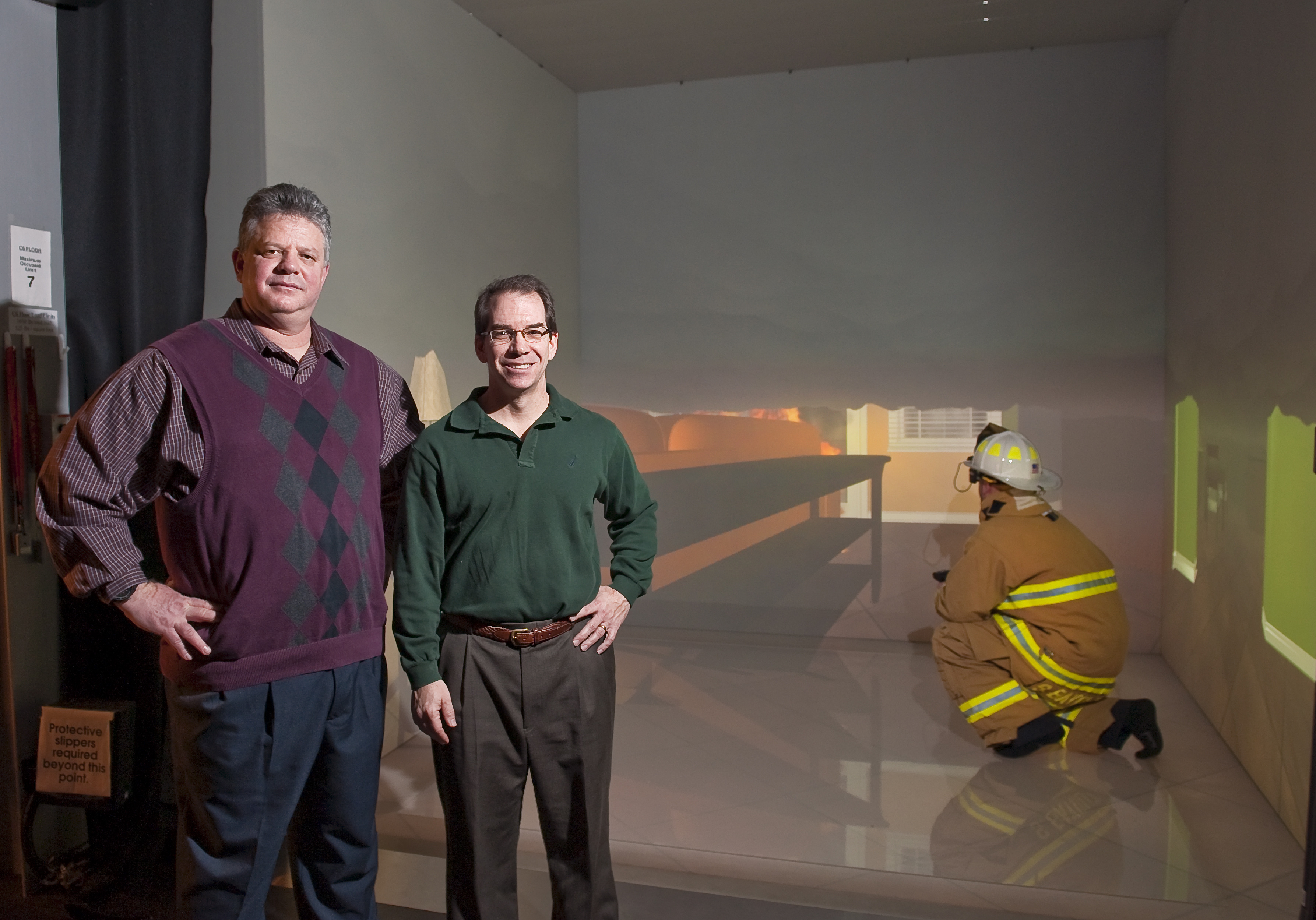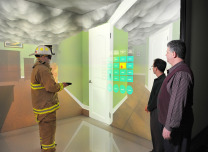
Nir Keren, left, and Warren Franke, center, have conducted research on firefighter stress levels using virtual reality simulations. Larger image. Photo by Robert Elbert.
AMES, Iowa – Experienced firefighters take longer to make decisions under stress than novice firefighters, according to research conducted at Iowa State University. But that’s not necessarily a bad thing.
After conducting dozens of virtual reality trials in which real firefighters with varying levels of experience responded to fire simulations, experts at Iowa State said this week that seasoned firefighters took a more analytical approach than their less experienced colleagues when making decisions.
“The experienced firefighters put a heavier emphasis on enhancing their situational awareness and creating a mental map for themselves,” said Nir Keren, an associate professor of agricultural and biosystems engineering.
Keren said experienced firefighters are more likely to make good decisions when faced with a crisis, even if it takes them longer to decide on a course of action.
Surprising results
The Iowa State University study ran contrary to conventional wisdom regarding the value of experience in making stressful decisions, Keren said.
“One of the most interesting things we found was that firefighters with a high level of experience, who we expected to be faster decision makers and have a lower stress level, did not. In fact, the opposite occurred,” he said. “The experienced firefighters took significantly longer to make decisions, and their stress levels were at least as high as novice firefighters, if not higher.”
The study was conducted in 2011, but the researchers involved in the project decided to slow down and look for factors that could explain the surprising results. For instance, inexperienced firefighters were more likely to take cognitive shortcuts when deciding on a course of action. Another factor may be that experienced firefighters may have a better understanding of the consequences of a bad decision and therefore feel more stressed, Keren said.
Virtual immersion, lifelike response
The ISU researchers made use of the most advanced techniques available by immersing subjects in a virtual firefighting reality and measuring the cognitive and physical stresses of the subjects. In all, 62 firefighters participated in the program over the course of about five months in 2011.
The research was performed at the C6 at Iowa State University’s Virtual Reality Applications Center, which is among the highest-definition six-sided virtual reality rooms in the world.
The researchers built a computer simulation program called Simulator for Enhancing Emergency Response, which recreates a believable environment in which firefighters are immersed in a seemingly real emergency. As part of the trials, firefighters encountered virtual residential fire scenarios and were asked to make choices about what they would do at given points. As the virtual situations grew increasingly dangerous, such as the smoke level increasing in the home, the firefighters’ heart rate and blood pressure were recorded to determine their response to stress.
Prior to using the virtual environment, testing for decision-making and stress levels could only be measured by interviewing firefighters after they had responded to a real incident. But physiological readings and real-time cognitive assessments from the trials indicate that the firefighters were convinced they were in a real emergency situation, said Warren Franke, a professor of kinesiology who worked on the study.
“I could be looking at the data of the firefighters – just reading their blood pressure and heart rate – and I could tell just by looking at the readouts when the first firefighter scenario started in the virtual reality room. They would mentally switch to firefighter mode. They were totally immersed in the situation,” Franke said.
